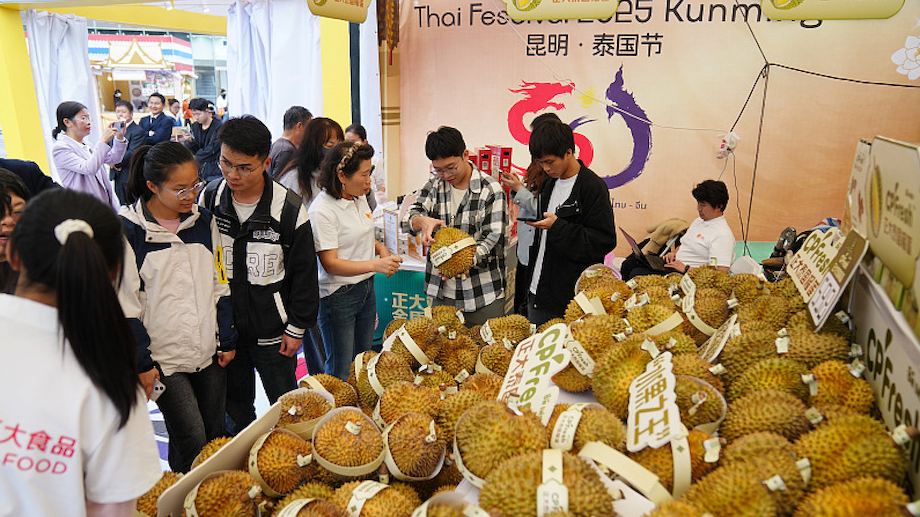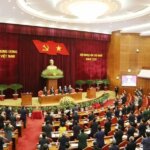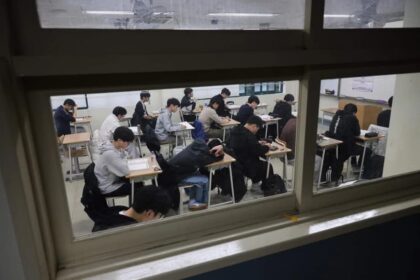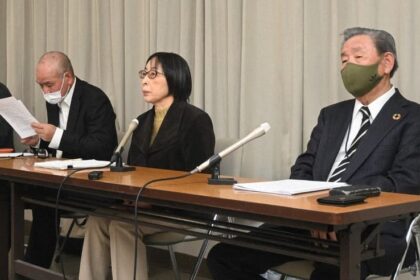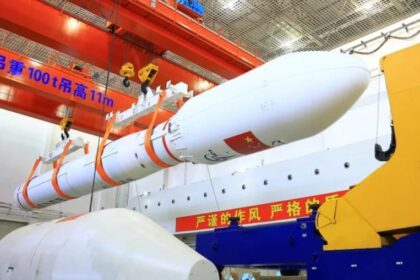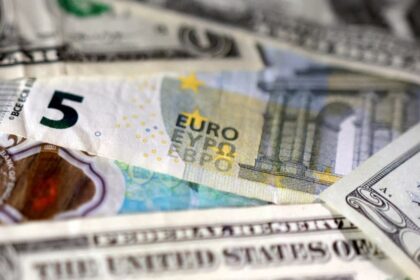China and Thailand Mark 50 Years of Diplomatic Relations with Economic, Cultural, and Strategic Milestones
Anniversary celebrations in 2025 highlight deepening trade, tourism, and people-to-people ties as both countries look to the future.
On July 1, 2025, China and Thailand officially celebrated the 50th anniversary of their diplomatic relationship, marking half a century of partnership that has transformed both nations’ economies, societies, and regional influence. The milestone was commemorated with high-level receptions, cultural exchanges, and major tourism initiatives in both countries, reflecting a relationship that has grown from cautious beginnings into a model of regional cooperation and mutual benefit.
- China and Thailand Mark 50 Years of Diplomatic Relations with Economic, Cultural, and Strategic Milestones
- How Did China-Thailand Relations Begin and Evolve?
- Economic Partnership: Trade, Investment, and Connectivity
- Tourism and People-to-People Exchanges: A New Era of Mobility
- Cultural and Spiritual Bonds: Celebrations, Heritage, and Sports Diplomacy
- Strategic and Security Cooperation: Building a Shared Future
- Looking Ahead: The Next 50 Years
- Key Points
The anniversary comes at a time when China is Thailand’s largest trading partner, top source of foreign investment, and leading provider of inbound tourists. The two countries have also deepened their collaboration in culture, technology, and security, while high-profile events and people-to-people exchanges have underscored the enduring warmth between their populations.
How Did China-Thailand Relations Begin and Evolve?
Formal diplomatic ties between China and Thailand were established on July 1, 1975, in the midst of Cold War tensions and shifting global alliances. At the time, Thailand’s close relationship with the United States had delayed recognition of the People’s Republic of China. Yet, the two countries shared centuries of people-to-people contact, with a significant Chinese diaspora in Thailand—today, about 40 percent of Thais have some Chinese ancestry.
Since normalization, the relationship has steadily deepened. In the late 1970s, as China began its reform and opening-up, Thailand’s CP Group became the first foreign investor in Shenzhen, symbolizing early economic cooperation. Over the decades, both countries have weathered regional crises, natural disasters, and global economic shocks together, forging a partnership based on mutual respect and shared interests.
According to Zhang Jianwei, the Chinese Ambassador to Thailand, the relationship is underpinned by a sense of kinship and mutual support. He noted:
“The deep-rooted sentiment that China and Thailand are as close as one family is based on millennia of friendship and mutual support through crises like the Asian financial crisis, natural disasters, and the COVID-19 pandemic.”
High-level leadership from both sides, including frequent exchanges and personal involvement from the Thai Royal Family, has guided the flourishing relationship. President Xi Jinping’s historic 2022 visit to Thailand and the anticipated state visit of the Thai King and Queen to China further highlight the importance both countries place on their partnership.
Economic Partnership: Trade, Investment, and Connectivity
Economic cooperation has become the cornerstone of China-Thailand relations. China has been Thailand’s largest trading partner for over a decade and, since 2023, its largest source of foreign investment. In 2024, China reclaimed its position as the top source of inbound visitors to Thailand, reflecting the growing interconnectedness of their economies.
Bilateral trade reached $133.98 billion in 2024, a 6.1 percent increase from the previous year. This growth has been driven by initiatives such as the Belt and Road Initiative (BRI), which has improved infrastructure and logistics, and the Regional Comprehensive Economic Partnership (RCEP), which has reduced trade barriers across Asia-Pacific.
One vivid example of economic integration is the booming trade in Thai agricultural products, especially durian, which now reaches Chinese markets within days via the China-Laos Railway. The upcoming China-Thailand high-speed railway, currently under construction, promises to further enhance the movement of goods and people between the two countries.
Thailand’s export-led industrialization and focus on tourism have benefited from China’s economic rise and openness. Meanwhile, Chinese investment has flowed into Thai industries ranging from manufacturing to clean energy and digital technology.
During a recent economic forum in Bangkok, representatives from both countries highlighted the mutual benefits of cooperation in areas such as advanced industries, digital economy, and clean energy. Several new agreements were signed to deepen collaboration in these sectors.
Tourism and People-to-People Exchanges: A New Era of Mobility
Tourism has long been a pillar of China-Thailand relations, but the introduction of a mutual visa exemption policy in March 2024 has led to an unprecedented surge in travel between the two countries. In the first half of 2024, the number of Thai visitors to China jumped by nearly 494 percent year-on-year, while Chinese tourists to Thailand increased by almost 92 percent.
To mark the 50th anniversary, the Tourism Authority of Thailand (TAT) launched the “Nihao Month” festival, featuring special events, concerts, and promotions aimed at attracting Chinese tourists. The campaign is expected to bring in 250,000 arrivals from China during the Golden Week holiday and generate significant media exposure for Thailand as a preferred destination.
Chinese tourists visiting Thailand between September and October 2025 can enjoy exclusive deals on airfares, hotels, shopping, and attractions by presenting their passports at participating vendors. Meanwhile, Thai travelers are being encouraged to explore Chinese destinations through tailored tour packages and cultural exchange programs.
One of the most ambitious initiatives is the “Once in a Lifetime Bangkok–Beijing Friendship Caravan,” a 16-day road rally covering over 5,000 kilometers from Bangkok to Beijing. The caravan, featuring 15 electric vehicles, will pass through historic and scenic sites in Thailand, Laos, and China, culminating in a grand ceremony at Tiananmen Square. The event is expected to reach an audience of over one billion through extensive media coverage, symbolizing the enduring friendship and growing connectivity between the two nations.
According to Thapanee Kiatphaibool, Governor of the Tourism Authority of Thailand:
“This symbolic journey demonstrates the enduring friendship between Thailand and China and reflects the shared commitment to strengthen cultural and tourism exchanges.”
Cultural and Spiritual Bonds: Celebrations, Heritage, and Sports Diplomacy
The 50th anniversary celebrations have placed a strong emphasis on cultural and spiritual exchange. In December 2024, the Holy Tooth Relic of Lord Buddha from Beijing’s Lingguang Temple was brought to Thailand for public worship at Sanam Luang in Bangkok. The event, coinciding with the 72nd birthday of King Rama X, offered a rare opportunity for Thais to pay homage and highlighted the shared Buddhist heritage of both countries.
The enshrinement of the Buddha tooth relic in a specially designed pavilion blending Thai and Chinese architectural elements symbolized the synthesis of their cultures. Leaders from both countries have emphasized the importance of such cultural programs in strengthening bilateral ties and fostering mutual understanding.
Sports have also played a role in the anniversary celebrations. Muaythai, Thailand’s national martial art, was featured prominently in events across China, including the World Games in Chengdu. Demonstrations, performances, and joint competitions with Chinese Wushu practitioners showcased the role of martial arts as a bridge between the two nations. The International Federation of Muaythai Associations (IFMA) led initiatives to promote youth engagement, cultural exchange, and sporting cooperation at both national and Olympic levels.
Regional initiatives, such as the Guizhou Audio-Visual Journey Promotion in Bangkok, have introduced Thai audiences to Chinese culture, cuisine, and tourism opportunities. Collaborative musical performances and interactive exhibitions have further deepened people-to-people connections.
Strategic and Security Cooperation: Building a Shared Future
Beyond economics and culture, China and Thailand have expanded their cooperation in security, defense, and regional stability. In July 2025, Thailand marked the 98th anniversary of the founding of the Chinese People’s Liberation Army (PLA) with a ceremony in Bangkok attended by senior officials from both countries. The event underscored Thailand’s commitment to deepening collaboration with China in areas such as military training, disaster prevention, and health security.
Both governments have reaffirmed their support for each other’s core interests, with Thailand upholding the One-China Policy and China supporting Thailand’s development and modernization. The two countries have also pledged to work together on regional peace and security, including cooperation within ASEAN frameworks and support for the early conclusion of the ASEAN-China Free Trade Area 3.0 Upgrade Protocol.
In a joint statement issued during the Thai Prime Minister’s visit to Beijing in February 2025, both sides committed to advancing their Comprehensive Strategic Cooperative Partnership and building a “China-Thailand Community with a Shared Future.” The statement emphasized the importance of multilateralism, regional connectivity, and sustainable development.
Vice Foreign Minister Sun Weidong of China, meeting with a delegation of former Thai ambassadors, highlighted the resilience of the relationship:
“China is ready to work with Thailand to strengthen strategic communication, enhance unity and cooperation, seek common development and prosperity, and advance the building of a China-Thailand community with a shared future to a higher level and deeper dimension.”
Looking Ahead: The Next 50 Years
As China and Thailand celebrate their Golden Jubilee of diplomatic ties, both countries are looking to the future with optimism. The foundations laid over the past five decades—in trade, investment, culture, and strategic cooperation—provide a strong platform for further growth and collaboration.
Upcoming infrastructure projects, such as the completion of the China-Thailand high-speed railway, are expected to boost connectivity and economic integration. The expansion of digital economy initiatives, clean energy cooperation, and educational exchanges will open new avenues for partnership.
People-to-people ties remain at the heart of the relationship. Mutual visa-free travel, student exchanges, and cultural programs are fostering greater understanding and friendship between younger generations. As both countries navigate an increasingly complex regional and global environment, their commitment to working together for stability, prosperity, and sustainability remains unwavering.
Key Points
- China and Thailand marked 50 years of diplomatic relations on July 1, 2025, with major celebrations in both countries.
- China is Thailand’s largest trading partner, top source of foreign investment, and leading provider of inbound tourists.
- Mutual visa exemption policies have led to a surge in tourism and people-to-people exchanges.
- Cultural and spiritual events, such as the enshrinement of the Buddha tooth relic and Muaythai showcases, have highlighted shared heritage.
- Strategic cooperation has expanded to include security, defense, and regional stability initiatives.
- High-level visits and joint statements reaffirm both countries’ commitment to a “shared future.”
- Major infrastructure projects and digital economy initiatives are set to deepen economic integration.
- Both countries aim to build on their strong foundation for another 50 years of partnership and prosperity.


